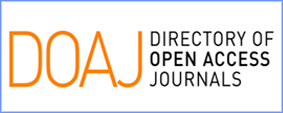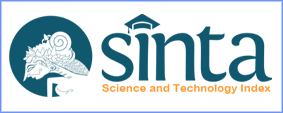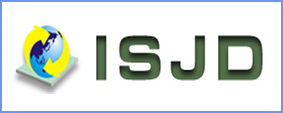Analisis Kesalahan Siswa Kelas VIII dalam Menyelesaikan Soal Literasi Matematika Menggunakan Tes Testlet
Abstract
Literasi matematika merupakan sebuah kemampuan yang berkontribusi besar dalam penyelesaian masalah sehari-hari dengan berbagai konteks. Capaian literasi matematika siswa Indonesia masih rendah dan menunjukkan adanya kesulitan siswa dalam menyelesaikan soal literasi matematika dengan indikasi adanya kesalahan siswa dalam mengerjakan soal literasi matematika. Penelitian ini bertujuan untuk mendeskripsikan persentase kesalahan yang dilakukan siswa dalam menyelesaikan soal literasi matematika menggunakan tes testlet, mendeskripsikan persentase kesalahan pada tiap aspek literasi matematika, dan mendeskripsikan jenis-jenis kesalahan yang dilakukan siswa dalam menyelesaikan soal literasi matematika. Jenis penelitian ini adalah penelitian deskriptif dengan pendekatan kualitatif. Subjek penelitian ini adalah 153 siswa kelas VIII salah satu SMP di Kecamatan Mlati, Kabupaten Sleman. Hasil penelitian menunjukkan bahwa: (1) Persentase kesalahan yang dilakukan siswa kelas VIII dalam menyelesaikan soal literasi matematika menggunakan tes testlet berkisar antara 1,307%–96,078%; (2) 83,66% dan 59,62% kesalahan dilakukan siswa pada konten aljabar, serta geometri dan pengukuran, pada konteks personal, sosial budaya, dan saintifik masing-masing sebesar 62,75%, 76,78%, dan 75,38%, pada level kognitif knowing, applying, dan reasoning masing-masing sebesar 61,5%, 77%, dan 76,83%; (3) Jenis kesalahan dari yang paling dominan dilakukan adalah kesalahan transformasi sebesar 38%, kesalahan keterampilan proses sebesar 31%, kesalahan penulisan jawaban akhir sebesar 18%, dan kesalahan memahami sebesar 13%.
Mathematical literacy is an ability that contributes greatly to solving everyday problems with various contexts. Achievement of mathematical literacy of Indonesian students is still low and shows the difficulty of students in solving mathematical literacy problems with an indication of students' errors in solving mathematical literacy problems. This study aims to describe the percentage of errors made by students in solving mathematics literacy problems using testlet test, describe the percentage of errors in eact aspect of mathematics literacy, and describe the types of errors made by students in solving mathematical literacy questions. This type of study is descriptive research with a qualitative approach. The subjects of this research were 153 students in class VIII of one of the junior high schools in Kecamatan Mlati, Kabupaten Sleman. The research results showed that: (1) The percentage of errors made by class VIII students in solving mathematical literacy questions using the testlet test ranged from 1,307%–96,078%; (2) 83,66% errors were made by students in algebra content and 59,62% of errors were made by students in geometry and measurement content, in personal, socio-cultural and scientific contexts, respectively 62,75%, 76,78% and 75,38%, at the cognitive level of knowing, applying, and reasoning respectively 61,5%, 77%, and 76,83%; (3) The most dominant types of errors made were transformation errors at 38%, process skills errors at 31%, errors in writing final answers at 18%, and understanding errors at 13%.
Keywords
Full Text:
PDFReferences
Dalyono. (2009). Psikologi Pendidikan. Jakarta: P.T. Rineka Cipta.
De Lange, J. (2006). Mathematical literacy for living from OECD-PIA perspective. Tsukuba Journal of Educational Study in Mathematics, 25, 13.
Fauzia, T. I., & Retnawati, H. (2023). Analisis Kesalahan Siswa SMA Dalam Mengerjakan Soal Literasi Matematika Model AKM. Jurnal Pedagogi Matematika, 9(3), 143–156. https://doi.org/10.21831/jpm.v9i2.19624
Ferryansyah, & Anwar, A. (2020). Hubungan Kemampuan Awal Matematika dengan Kemampuan Pemahaman Konsep Matematika Siswa Kelas VIII SMP 12 Tarakan. Mathematic Education And Aplication, 2(1), 8–14. https://doi.org/10.35334/meta.v2i1.1630
Hawa, A. M., & Putra, L. V. (2018). PISA Untuk Siswa Indonesia. JANACITTA (Journal of Primary and Children’s Education), 1(1), 12–20. https://doi.org/https://doi.org/10.35473/jnctt.v1i1.13
Lestari, R. D., & Effendi, K. N. S. (2022). Analisis Kemampuan Literasi Matematis Siswa SMP Pada Materi Bangun Datar. Biormatika: Jurnal Ilmiah Fakultas Keguruan Dan Ilmiah, 8(1), 63–73. http://ejournal.unsub.ac.id/index.php/FKIP
Mauliandri, R., & Kartini. (2020). Analisis Kesalahan Siswa Menurut Kastolan Dalam Menyelesaikan Soal Operasi Bentuk Aljabar pada Siswa SMP. AXIOM : Jurnal Pendidikan Dan Matematika, 9(2), 107–123. https://doi.org/10.30821/axiom.v9i2.7687
Murti, Wiyanto, & Hartono. (2018). Studi Komparasi antara Tes Testlet dan Uraian dalam Mengukur Hasil Belajar Kognitif Siswa Kelas XI SMA Negeri 1 Gombong. UPEJ Unnes Physics Education Journal, 7(1), 32–41. https://doi.org/10.15294/upej.v7i1.22469
OECD. (2007). PISA 2006: Science Competencies for Tomorrow’s World Executive Summary. Paris: OECD Publishing.
OECD. (2010). PISA 2009 Results: Executive Summary. Paris: OECD Publishing.
OECD. (2014). PISA 2012 Results in Focus: What 15-years-olds know and what they can do with what they know. Paris: OECD Publising.
OECD. (2016). PISA 2015 Results (Volume I): Excellence and Equity in Education. Paris: OECD Publishing. http://dx.doi.org/10.1787/9789264266490-en
OECD. (2018). PISA 2021 Mathematics Framework (Draft). 2nd draft 32-40. Angewandte Chemie International Edition, 6(11), 951–952., 5–24.
OECD. (2019). PISA 2018 Results: Combined Executive Summaries Paris: OECD Publishing.
OECD. (2023). PISA 2022 Results (Volume I): The State of Learning and Equity in Education. Paris: OECD Publishing. https://doi.org/10.1787/53f23881-en.
Ojose, B. (2011). Mathematics literacy : are we able to put the mathematics we learn into everyday use? Journal of Mathematics Education, 4(1), 89–100.
Prabawati, M. N., Muslim, S. R., & Mansyur, Z. (2021). Analisis Kesalahan Siswa Sekolah Menengah Pertama di Kota Tasikmalaya dalam Menyelesaikan Soal Literasi Matematis pada Materi SPLDV. Jurnal Penelitian Pendidikan Dan Pengajaran Matematika, 7(2), 117–128. https://doi.org/10.37058/jp3m.v7i2.3661
Pranitasari, D., & Ratu, N. (2020). Analisis Kesalahan Siswa Dalam Menyelesaikan Soal Matematika PISA pada Konten Change and Relationship. AKSIOMA: Jurnal Program Studi Pendidikan Matematika, 9(4), 1235. https://doi.org/10.24127/ajpm.v9i4.2685
Putri, H. E., Isrokatun, I., Majid, N. W. A., & Ridwan, T. (2019). Spatial Sense Instrument for Prospective Elementary School Student. Journal of Physics: Conference Series, 1318(1). https://doi.org/10.1088/1742-6596/1318/1/012142
Shiell, R. C. R., & Slepkov. (2015). Integrated Testlets: A New Form of Expert-Student Collaborative Testing. Collected Essays on Learning and Teaching, Vol.VIII.
Stacey, K., & Turner, R. (2015). Assessing mathematical literacy: The PISA experience. Assessing Mathematical Literacy: The PISA Experience, 1–321. https://doi.org/10.1007/978-3-319-10121-7
Sumirattana, S., Makanong, A., & Thipkong, S. (2017). Using Realistic Mathematics Education and The DAPIC Problem-solving Process to Enhance Secondary School Students' Mathematical Literacy. Kasetsart Journal of Social Sciences, 38(3), 307-315. http://dx.doi.org/10.1016/j.kjss.2016.06.001
Susongko, P. (2010). Perbandingan Keefektifan Bentuk Tes Uraian dan Testlet dengan Penerapan Graded Response Model (GRM). Jurnal Penelitian Dan Evaluasi Pendidikan, 14(2), 269–288. https://doi.org/10.21831/pep.v14i2.1082
Wainer, H., & Kiely, G. L. (1987). Item Clusters and Computerized Adaptive Testing: A Case for Testlets. Journal of Educational Measurement, 24(3), 185-201. doi: 10.2307/1434630
Wijaya, A., Effendi, A., Susanto, D., & Dewayani, S. (2023). Framework Asesmen Kompetensi Minimum (AKM).
Wijaya, A., Van Den Heuvel-Panhuizen, M., Doorman, M., & Robitzsch, A. (2014). Difficulties in solving context-based PISA mathematics tasks: An analysis of students’ errors. In The Mathematics Enthusiast (Vol. 11, Issue 3).
Article Metrics
Abstract has been read : 85 timesPDF file viewed/downloaded: 0 times
DOI: http://doi.org/10.25273/jipm.v12i2.18707
Refbacks
- There are currently no refbacks.
Copyright (c) 2024 JIPM (Jurnal Ilmiah Pendidikan Matematika)

This work is licensed under a Creative Commons Attribution-ShareAlike 4.0 International License.
View JIPM Stats
JIPM indexed by:
Copyright of JIPM (Jurnal Ilmiah Pendidikan Matematika) ISSN 2502-1745 (Online) and ISSN 2301-7929 (Print)













